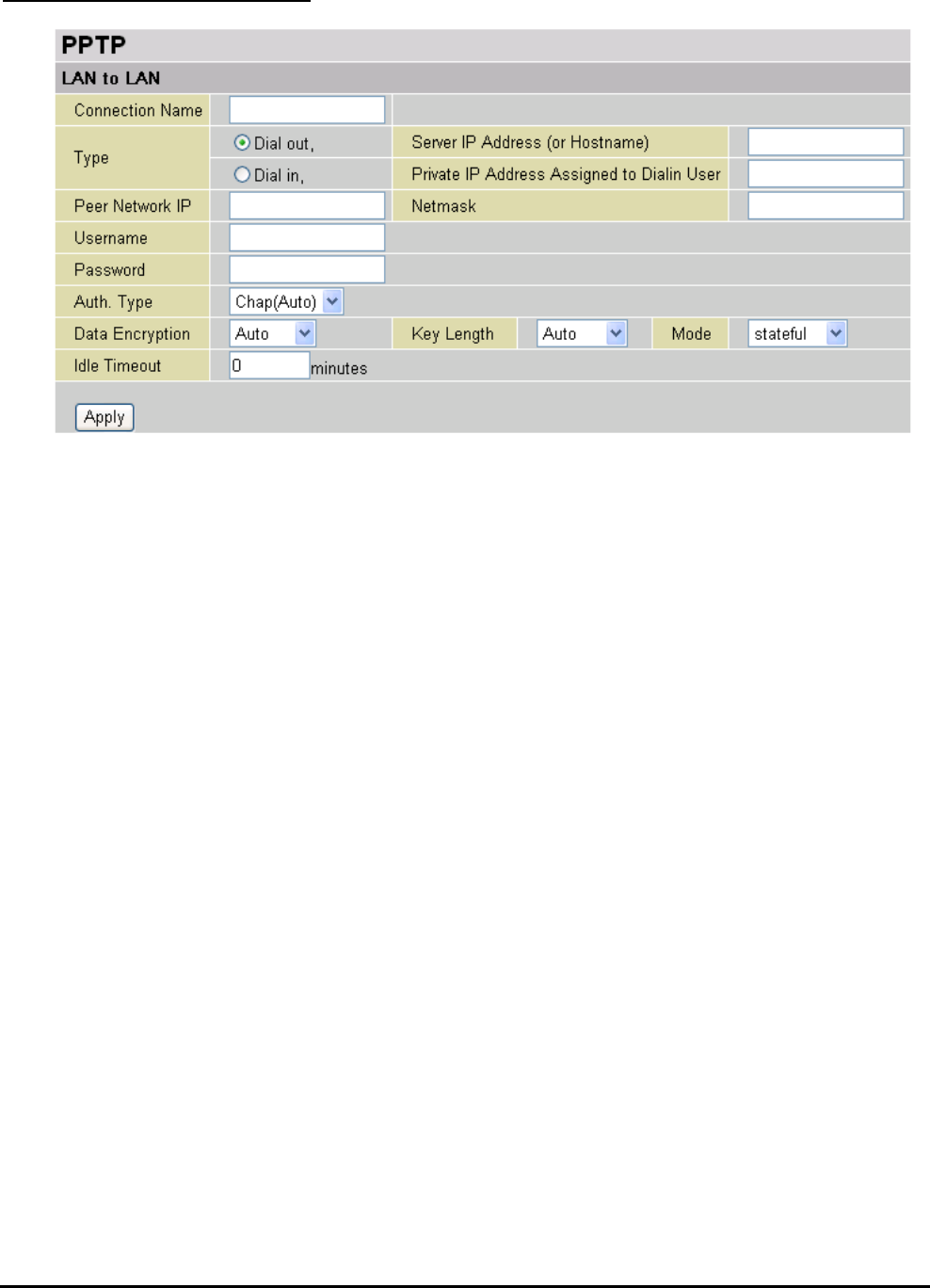
BiPAC 7402R2 ADSL2+ VPN Firewall Router
Chapter 4: Configuration
Active as default route: Enables the default route.
Click Apply button to apply your changes.
PPTP Connection - LAN to LAN
Connection Name: A user-define description of the connection.
Type: Check Dial Out if you want your router to operate as a client (connecting to a remote VPN server,
e.g. your office server), check Dial In operates as a VPN server.
When configuring your router as a Client, enter the remote Server IP Address (or Hostname) you
wish to connection to.
When configuring your router as a server, enter the Private IP Address Assigned to Dial in User
address.
Peer Network IP: Enter Peer network IP address.
Netmask: Enter the subnet mask of peer network based on the Peer Network IP setting.
Username: If you are a Dial-Out user (client), enter the username provided by your Host. If you are a
Dial-In user (server), enter your own username.
Password: If you are a Dial-Out user (client), enter the password provided by the your Host. If you are a
Dial-In user (server), enter your own password.
PPP Authentication Type: Default is Auto if you want the router to determine the authentication type to
use, or else manually specify CHAP (Challenge Handshake Authentication Protocol) or PAP (Password
Authentication Protocol) if you know which type the server is using (when acting as a client), or else the
authentication type you want clients connecting to you to use (when acting as a server). When using
PAP, the password is sent unencrypted, whilst CHAP encrypts the password before sending, and also
allows for challenges at different periods to ensure that the client has not been replaced by an intruder.
Data Encryption: Data sent over the VPN connection can be encrypted by an MPPE algorithm. Default
is Auto, so that this setting is negotiated when establishing a connection, or else you can manually
Enable or Disable encryption.
Key Length: The data can be encrypted by MPPE algorithm with 40 bits or 128 bits. Default is Auto, it
is negotiated when establishing a connection. 128 bit keys provide stronger encryption than 40 bit keys.
72


















